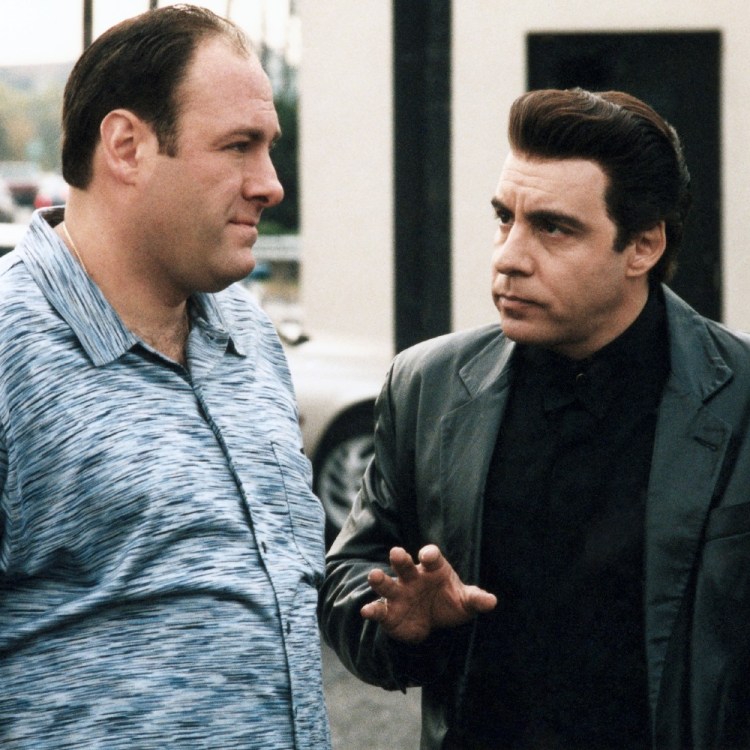These are strange political times to live through. Early on in Friday’s episode of Real Time With Bill Maher, the audience cheered wildly when Maher pointed out that a temporary government funding bill had passed. Maher was more frustrated than impressed, and directed his frustration at the Republicans in Congress who had caused the issue to begin with. Or, as Maher phrased it, “This stupid, stupid game of chicken that they always play when a Democrat is the president.”
The rest of Maher’s opening monologue didn’t lack for material, from a riff on Stephanie Grisham’s memoir of her time in the Trump White House to issues in the global supply chain. “There’s no chicken — but if you want a plastic rat that sings, ‘The Monster Mash,’ we’ve got you covered,” Maher said.
Maher introduced his first guest, Stevie Van Zandt, as “the ultimate rock’n’roll rebel” — while also hailing his ability as an actor. (Later, Van Zandt would call Maher an “American treasure.” There was a lot of mutual admiration going on.) Van Zandt’s new memoir, Unrequited Infatuations, was published earlier this week, and the jovial conversation between the two men found Van Zandt looking back over his career. This included him reflecting on his decision to become “the political guy” when he left the E Street Band.
The segment also included Maher looking back at the covers of some of Van Zandt’s 80s work — which has an almost archetypally late-80s aesthetic to it. “It’s a look,” Van Zandt said with a shrug.
Maher revisited Van Zandt’s work raising awareness for the cultural boycott of apartheid-era South Africa — as well as a lot of his most notable work as a musician. But Van Zandt struck a more philosophical (and even melancholy) note. “What do you do after that?” he said regarding moments of professional frustration and disappointment. “Do you give up and throw in the towel, or do you find a way to move forward? I hope the book is useful that way.”
For the night’s panel, Maher was joined by TK News editor and podcast host Matt Taibbi and Reason editor and podcast host Katherine Mangu-Ward. As was the case with the monologue, budgetary talk kicked off the discussion. The overall tone was one of skepticism — both Maher and Mangu-Ward seemed unimpressed with the bill, while Taibbi opted to make a broader argument about partisan politics and economic theory.
Both panelists also took a more historical view. “Republicans have destroyed their reputation as responsible fiscal stewards,” Mangu-Ward observed, to which Maher concurred.
The idea of free community college led the panelists to discuss whether going to college was actually a good idea, given the amount of student loan debt that many people have afterwards. Taibbi noted that, for many jobs in the country right now, a college degree is required — with Mangu-Ward pointing out that a number of Reason jobs have gone to people without college degrees. And Maher revisited one of his preferred themes of this year — namely, that college is overrated.
From there, the panelists pondered recent data on women getting more college degrees than men — with Taibbi bringing up the partisan implications of this. And Mangu-Ward made the case for libertarians as a way to bridge partisan divides in the country. “There’s something to hate and something to love for both sides about us, and we’re super-fun at parties,” she said.
Later in the discussion, Maher criticized Taibbi for Taibbi’s skepticism of Russian collusion, leading to a fairly intense back-and-forth. “I kind of feel like I’m at a table with two dudes who each have their own bulletin board covered with yarn and news clippings,” Mangu-Ward said.
And then it was time for New Rules — which included riffs on dog weddings, quantum clocks and the ICM/CAA merger. (For the last of these, Maher quipped that the resulting company could be called “IM CACA.”) The bulk of the segment, though, found Maher expressing his bewilderment over the van life movement. “This is what retirees do,” he observed.
“You’re not a hobo! You’re a content provider,” he said later in the segment. And, sure enough, the segment then veered into a broader swing at Millennials and Gen Z. Maher described this mindset as, “I want my job to be, ‘I’m me, and people pay to watch that.’” Which is a somewhat odd argument to make for someone who has done exactly that.
Maher made a better point later on, when he expressed skepticism about “selling each other our life stories as the basis for our economy.” Here, the argument landed home a bit more — though it ended with an argument against cancel culture that Real Time viewers will find familiar. There were a few notes where Maher nodded to the odd gymnastics of his argument here; those, unsurprisingly, made for the segment’s most candid moments. Maybe there’s hope for reconciliation after all.
Thanks for reading InsideHook. Sign up for our daily newsletter and be in the know.


















